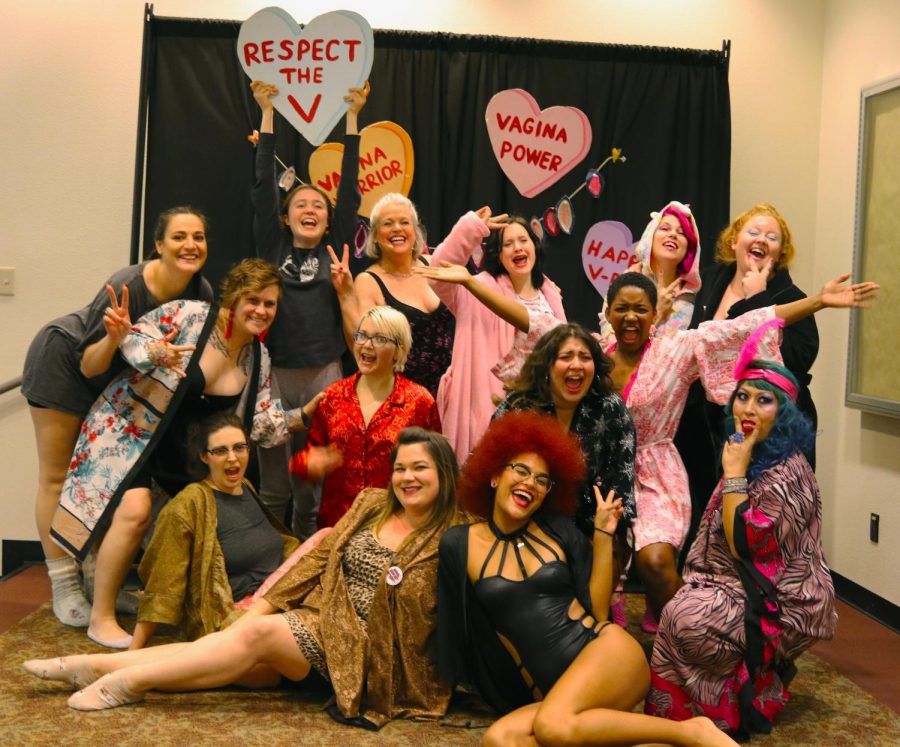Vagina Monologues offers an unapologetic narrative for the women of Chico
The whole cast posing for an after the show picture
Hundreds gathered to celebrate their womanhood and explore the nature of their gender identity during the Vagina Monologues, Friday night.
Among attendees were dozens of organizations detailing resources in Chico that help women secure proper reproductive care and relationship support.
Women on Reproductive Defense, an organization that informs women of certified clinics and offers escorting services to patients of protested clinics, was among the organizations that attended the Vagina Monologues.
Ellen Walker, a representative of WORD, described the importance of the organization and its role in women’s health.
“We provide the kinds of services that will help women obtain their rights and their justice, regardless of social pressures,” Walker said.
In contrast to the cute slumber party theme, the monologues offered a subliminal message to the audience about the dangerous repercussions of gender conforming expectations for women.
In a monologue labeled “Hair,” recited by Jess Mercer, the elements of the character’s crumbling marriage were depicted through the pubic state of her vagina.
“Our marriage counselor told me to shave my vagina to stop my husband from sleeping around,” Mercer recited. “She told him to shave me. When he shaved me, he was so happy, he didn’t care that he was nicking and cutting into me.”
Following monologues mirrored the tumultuous experiences of womanhood and the challenges enforced and ignored by society.
The word “vagina” and “pussy” was used over a hundred times throughout the monologues, empowering women to take back the vilified words.
Bri Guerrero-Vega, the women’s program coordinator for the Gender and Sexuality Equity Coalition (GSEC), explained the importance of the Vagina Monologues and the way the play empowers women of all ages.
“Vagina Monologues is used to provide a space and language for folks that want to empower themselves who have a vagina and identify as a woman,” Guerrero-Vega said.
To access further resources for women’s health, more information can be found in the GSEC office and the student health clinic.
Melissa Joseph can be reached at [email protected] or @melisstweetz on Twitter.








